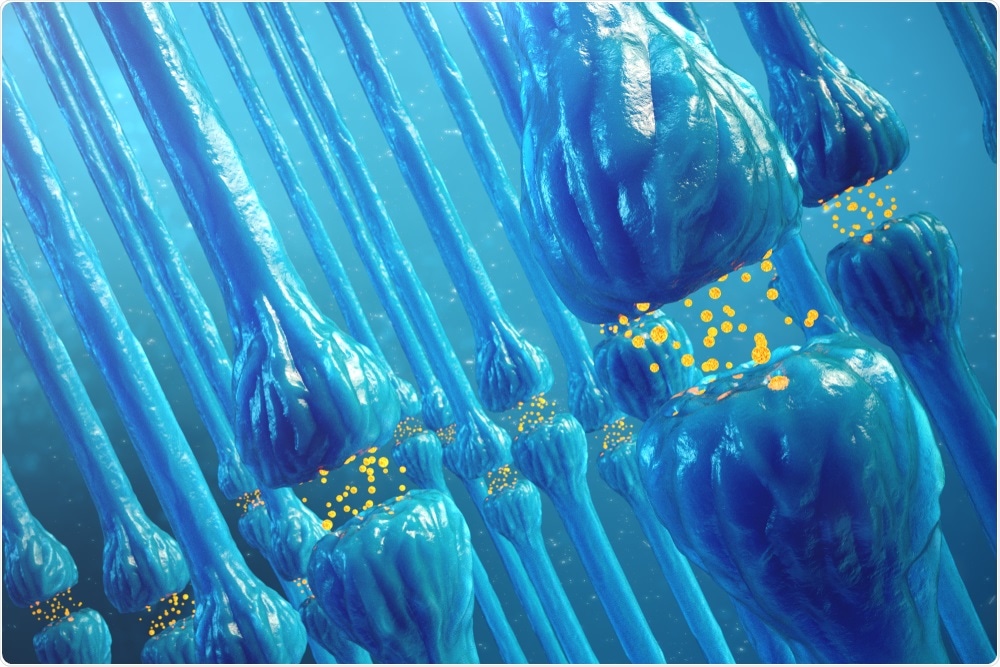Scientists at the University of Florida have found that a modified version of an immune cell protein could be used as a treatment for Alzheimer’s disease.
 Image Credit: Rost9 / Shutterstock
Image Credit: Rost9 / Shutterstock
In a mouse model of the disease, the researchers found that a soluble version of toll-like receptor 5 (TLR5) reduced the accumulation of the toxic β-amyloid that causes the degeneration and death of neurons.
The immune system plays a role in the progression of Alzheimer’s disease by reducing the accumulation of β-amyloid aggregates or by triggering inflammation that goes on to cause further neuronal damage.
One family of proteins present on the surface of immune cells – TLRs − responds to nerve cell damage by inducing an immune response.
Paramita Chakrabarty and colleagues from the University of Florida recently found that the level of these TLRs is higher in the brains of people with Alzheimer’s disease, partly owing to an increased level of brain immune cells called microglia.
This led them to ask whether soluble versions of TLRs taken from microglia could reduce amyloid plaque formation.
They hypothesized that the soluble TLRs could serve as “decoys” that bind to β-amyloid and reduce its accumulation, without triggering the immune system to induce inflammation.
In a mouse model of Alzheimer’s where human β-amyloid is produced in large amounts, the team found that one soluble TLR called TLR5 prevented and even reversed amyloid plaque formation.
As reported in the Journal of Experimental Medicine, the team found that soluble TLR5 did indeed bind to β-amyloid and increased its uptake by microglia.
TLR5 also limited β-amyloid’s ability to damage nerve cells.
By directly interacting with β-amyloid and attenuating β-amyloid levels in mice, the soluble TLR5 decoy receptor represents a novel and potentially safe class of immunomodulatory agents for Alzheimer's disease.”
Dr. Todd Golde, Co-author
“The potential of soluble TLR5 in dampening immune activation and related neurotoxic pathways needs to be further explored in multiple models of Alzheimer's disease,” concludes Chakrabarty.
Source:
This article has been re-written from a press release originally published on EurekAlert.